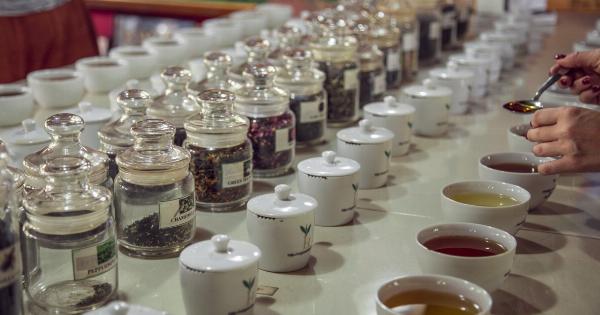Insomnia, also known as sleeplessness, is a common sleep disorder that affects millions of people worldwide. It can be characterized by difficulty falling asleep, staying asleep, or having poor quality sleep.
Chronic insomnia can lead to various health problems, including fatigue, irritability, difficulty concentrating, and even depression. While there are pharmaceutical options for treating insomnia, many individuals prefer natural remedies due to their milder side effects and potential long-term benefits.
The Benefits of Herbal Remedies for Insomnia
Herbs have been used for centuries in traditional medicine systems as a natural way to induce sleep and improve sleep quality.
These remedies can provide a gentle and holistic approach to treating insomnia, addressing both the underlying causes and the symptoms. Let’s explore some popular herbs and their sleep-inducing properties:.
1. Valerian Root
Valerian root is a well-known herb that has been used as a sedative and sleep aid for centuries. It contains compounds that increase the production of gamma-aminobutyric acid (GABA), a neurotransmitter that calms the nervous system and promotes sleep.
Valerian root is available in various forms, including capsules, teas, and tinctures.
2. Chamomile
Chamomile is a gentle herb with calming properties that can help to alleviate anxiety and promote relaxation. It contains apigenin, an antioxidant that binds to specific receptors in the brain, inducing sleepiness and reducing insomnia symptoms.
Chamomile tea is a popular bedtime remedy, known for its soothing effects.
3. Lavender
Lavender is widely recognized for its pleasant scent, but it also possesses sedative properties that can aid in sleep. Inhaling lavender essential oil or using it in a diffuser before bedtime can help promote relaxation and improve sleep quality.
Additionally, lavender tea can be an enjoyable and calming bedtime beverage.
4. Lemon Balm
Lemon balm, a member of the mint family, has been used for centuries to reduce anxiety and promote sleep. It contains compounds that increase GABA levels in the brain, similar to valerian root.
Lemon balm tea is known for its calming effects and can be an effective remedy for insomnia.
5. Passionflower
Passionflower is a plant with potent sedative properties. It can increase levels of GABA in the brain, resulting in a calming effect. Passionflower tea or tincture can help reduce anxiety and promote a restful night’s sleep.
6. Ashwagandha
Ashwagandha is an adaptogenic herb that helps the body adapt to stress and promotes relaxation. It can regulate cortisol levels, a hormone associated with stress, thereby improving sleep quality.
Consuming ashwagandha as a supplement or tea may help those with insomnia find relief.
7. California Poppy
California poppy is a mild sedative herb that can alleviate anxiety, pain, and insomnia. It contains natural compounds that bind to opioid receptors in the brain without causing addiction or unwanted side effects.
California poppy extracts are available in tincture form and can be consumed under professional guidance.
8. Catnip
Catnip, known for its effects on feline friends, can also help humans attain a restful night’s sleep. It has mild sedative properties and can be consumed as a tea. Catnip tea promotes relaxation, reduces anxiety, and aids in falling asleep faster.
9. Kava
Kava, derived from the root of the kava plant, has been used for centuries in the South Pacific as a ceremonial drink with relaxing properties. Its active compounds, kavalactones, can reduce anxiety and promote sleep.
However, it’s essential to use kava in moderation and under professional guidance due to potential interactions with other medications.
10. Hops
Hops, commonly known for their use in beer brewing, also possess sedative properties. They can promote relaxation, reduce anxiety, and aid in falling asleep faster. Hops are available in supplement form or can be consumed as a herbal tea.
Additional Tips for a Good Night’s Sleep
In addition to incorporating herbal remedies into your routine, it’s crucial to establish good sleep hygiene habits. Here are some tips to enhance your sleep quality:.
1. Create a Relaxing Bedtime Routine
Engage in activities that promote relaxation and signal to your body that it’s time to sleep. This may include reading a book, taking a warm bath, or practicing meditation or deep breathing exercises.
2. Limit Screen Time
The blue light emitted by electronic devices can disrupt your natural sleep-wake cycle. Avoid using electronic devices at least an hour before bedtime to ensure a more restful sleep.
3. Maintain a Consistent Sleep Schedule
Try to go to bed and wake up at the same time every day, even on weekends. This helps regulate your body’s internal clock and improves sleep quality over time.
4. Create a Sleep-Friendly Environment
Keep your bedroom cool, dark, and quiet to provide an optimal sleeping environment. Invest in comfortable bedding, pillows, and a supportive mattress that suit your preferences.
5. Avoid Stimulants
Avoid consuming stimulants such as caffeine, nicotine, and alcohol close to bedtime, as they can disrupt your sleep patterns.
6. Engage in Regular Physical Activity
Regular exercise, ideally during the day and not too close to bedtime, can contribute to better sleep. However, avoid vigorous workouts too close to bedtime, as they may increase alertness and make it harder to fall asleep.
Conclusion
Incorporating herbal remedies and adopting healthy sleep habits can significantly improve insomnia and promote restorative sleep.
While herbs provide a natural alternative to pharmaceutical sleep aids, it’s essential to consult a healthcare professional before introducing new supplements, especially if you have any underlying health conditions or are taking medications. By harnessing the power of herbs and establishing a bedtime routine, you can attain the peaceful sleep you deserve.























